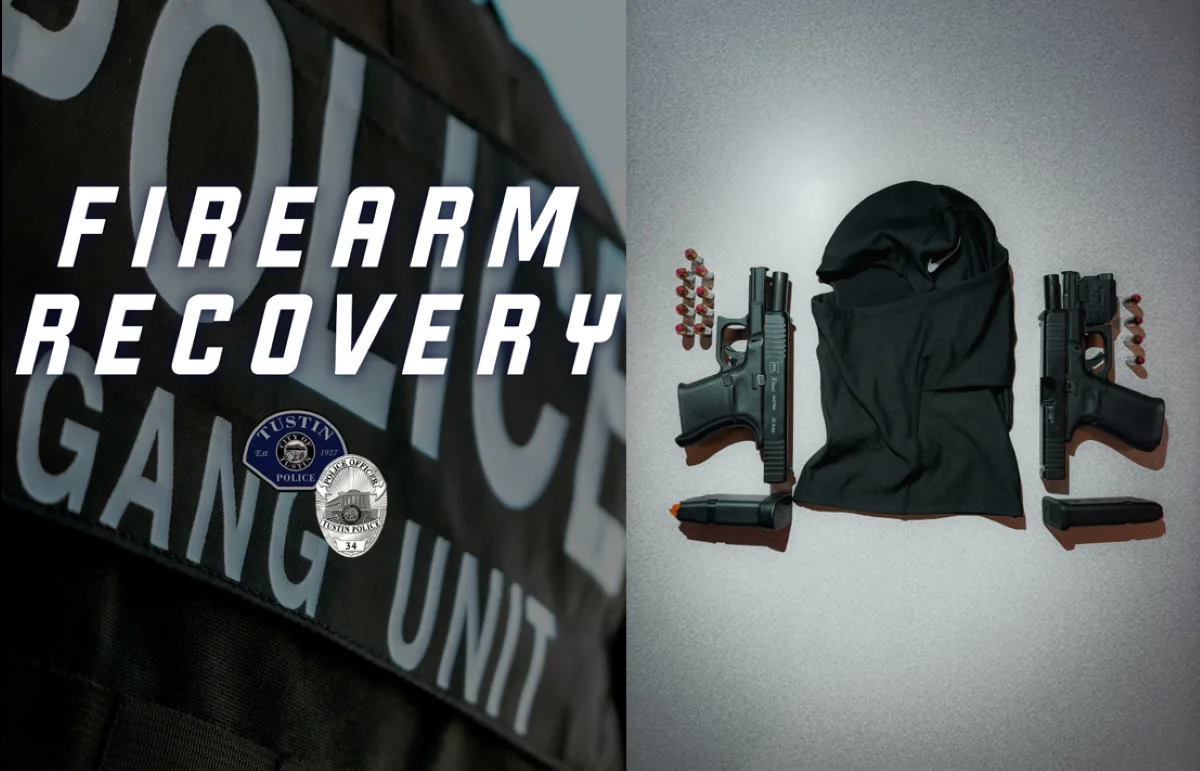Five taggers were still on scene when police officers showed up, according to the Tustin Police Department.
The brave taggers then tried to take off in their car. That did not work as they were ultimately pulled over.
Once the officers stopped the vehicle they found stolen guns and a facemask inside.
Outstanding observations by the patrol officers ended with a seizure of two firearms and multiple arrests of suspected gang members.
When you choose to spray graffiti in public you are advertising to everyone exactly who did the crime. If you opt to do this in Tustin you just might end up with a criminal record.
Penalties now faced by these suspects
The suspects in the Tustin graffiti incident face a range of legal penalties under California law, and their criminal records could significantly impact future employment opportunities.
Legal Penalties They May Face
- Graffiti / Vandalism (Penal Code §594)
- If damage is under $400: Misdemeanor, up to 1 year in county jail, community service, and fines up to $1,000.
- If damage exceeds $400: Can be charged as a felony, with up to 3 years in state prison.
- Possession of Graffiti Tools (Penal Code §594.2)
- Misdemeanor, up to 6 months in jail and/or fines.
- Possession of Stolen Firearms (Penal Code §496)
- Misdemeanor: If the firearm is valued under $950, up to 1 year in jail and a fine up to $1,000.
- Felony: If valued over $950 or if the suspect has prior convictions, 16 months to 3 years in prison and fines up to $10,000.
- Gang Enhancement (Penal Code §186.22)
- Participation in a gang: Up to 3 years in jail.
- Committing a crime for a gang’s benefit: Adds 2 to 10 years to the sentence, or even life in prison for certain felonies.
Impact on Employment Opportunities
Having a criminal record in California can make it significantly harder to find and keep a job:
- Background Checks: Most employers conduct them, and convictions—especially for violent or gang-related crimes—can be disqualifying.
- Licensing Restrictions: Certain professions (e.g., healthcare, law enforcement, education) may deny licenses to individuals with felony convictions.
- Stigma and Trust Issues: Employers may be reluctant to hire someone with a record, especially for roles involving responsibility or public interaction.
However, California’s woke Fair Chance Act offers some protections to these thugs:
- Employers cannot ask about criminal history until after a conditional job offer is made.
- They must conduct an individualized assessment before rescinding an offer due to a conviction.
- Applicants have the right to respond with evidence of rehabilitation or dispute the conviction report

